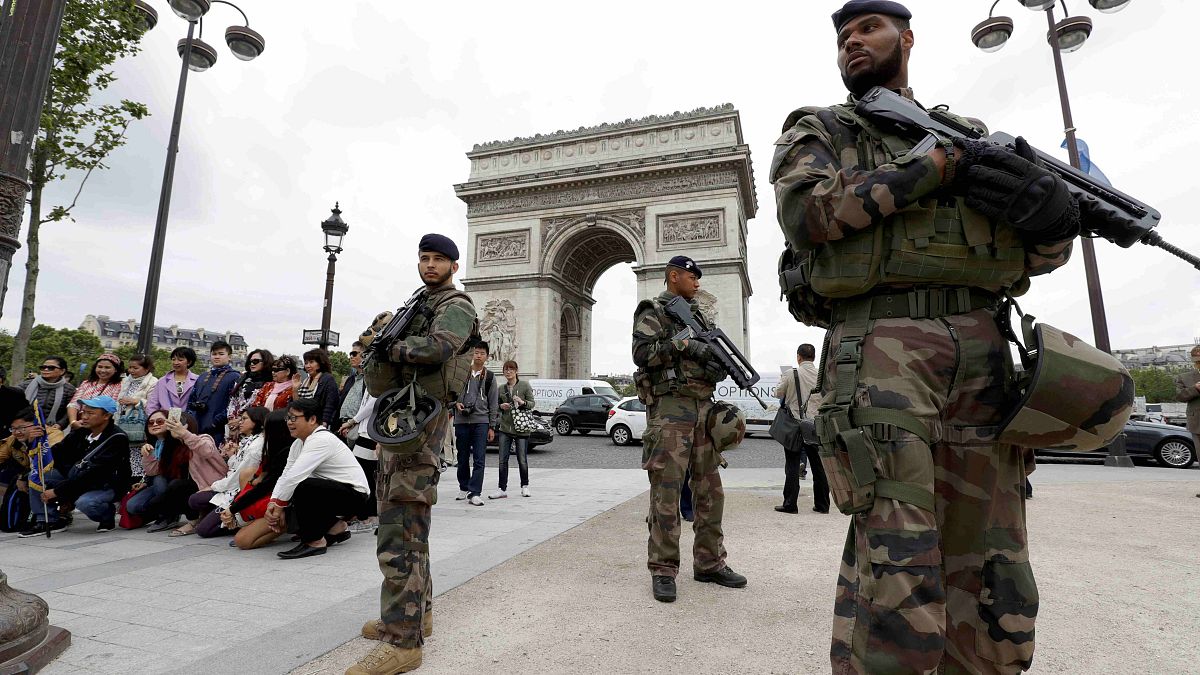The year 2016 is days away from ending and with it, many people throughout the world hope next year will bring less uncertainty and conflict
The year 2016 is days away from ending and with it, many people throughout the world hope next year will bring less uncertainty, political turmoil and conflict.
But one indicator of how people throughout the world reflect on this year is vocabulary; the words some countries have chosen to represent it are a telling sign.
France
Word of the year: Refugee
2016 was not kind to France, often in the spotlight, the country had to navigate multiple crises. A political crisis in the face of a fractured left and rising right, and the fear of far-right candidate Marine Le Pen, French politicians were often criticised for their handling of the country’s affairs.
Nowhere was scrutiny so particularly focused than on how France handled the relocation of nearly 10,000 people living in a, and the destruction of their, squalid camp outside Calais.
Many were sent to centres throughout the country, but there are reports that almost one-in-three unaccompanied children have gone missing.
The story of the so-called ‘Jungle’ migrant camp became emblematic of Europe’s struggle with the on-going migrant and refugee crisis. It became a symbol of political red tape and how quickly governments choose to set up walls and barriers to protect borders.
France’s word of the year was chosen unanimously by a jury of more than 20 journalists, academics and writers during the 12th annual Festival du Mot à la Charité-sur-Loire.
Eleven terms, including “Terrorism”, “Radicalisation”, “Security” and “Republic” were shortlisted and 98,500 people voted for their favourite online. After two days of voting, “refugee” held the top spot.
For Marc Le Carpentier, director of the Festival, “refugee” became a word of the year with a rare evidence. The proof is the speed with which it emerged from the lot of the 11 terms selected and the unanimity of the voters.
“If a word summarises both the serious situation faced by these populations living on the other side of the Mediterranean, the emotion that the spectators felt when seeing on television these people strolling on the roads of Europe, and the political challenge facing our governments is ‘refugees’. It affects everyone”, said political scientist and the president of the word selection jury, Roland Cayrol.
Germany
Word of the year: Post-factual
Like France, Germany will soon decide its 2017 presidential election and its political campaigns have are already getting underway.
Chancellor Angela Merkel announced she will run again for her fourth term as Chancellor. If she wins Merkel will have achieved a record few others accomplished before her.
If “refugees” was Germany’s word of the year for 2015, Germans this year take their cue from across the English Chanel and notice a disturbing trend (also witnessed months later in the United States) modern politicians will have to address – electorates are willing to ignore facts and accept their own emotions or even blatant lies, writes Deutschlandfunk.
“Post-factual” was chosen by Germany’s Society for German Language, which said it has increasingly noticed facts giving sway to emotion and lies for the purpose of galvanising and rebelling against an established political class.
In the case of Germany’s observation of Britain’s debate to leave the European Union, Brexit is the prime example of “Post-factual” in Europe.
The society argues the word of the year should not be those that are the most commonly used. Rather, it should be the one that holds the most significance.
Austria
Word of the year: Bundespräsidentenstichwahlwiederholungsverschiebung
Specifically referring to the impact of the country’s twice-held presidential election, in which, a far-right candidate was narrowly defeated, Bundespräsidentenstichwahlwiederholungsverschiebung describes the deferral of Austria’s long run-off election, reports The Local online newspaper.
Austria very nearly narrowly elected what would have been Europe’s first far-right leader since the era of the second world war. Twice.
Elections were originally held in May and voters backed Green-Party backed Alexander Van der Bellen with 50.35 percent of the vote to 49.65 percent for the Freedom Party’s Norbert Hofer.
After irregularities were found in the voting result. The election was held again.
In early December, Van der Bellen beat Hofer, 53.4 percent to 46.6.
According to the jury, the word’s content and its length “is a symbol and an ironic form of commentary for the political events of this year, characterized by the very long campaign for the presidential election, the challenges of the voting process, and its reiteration.”
In second place was the word “Bundesheinzi” a mashup of the Austrian German word for president and the nick-name of current President Heinz Fischer.
In third was “arschknapp”, an expletive, describing the close call of the country’s election.
Australia
Word of the year: Democracy Sausage
Defined by the Australian National Dictionary Centre, a Democracy Sausage is simply a sausage served on bread and bought at a polling booth “sizzle” on election day.
Australians love their barbecues and in Australian English, a “sizzle” is barbecue organised for a good cause and held outside shops, schools or sporting events.
The word first came about in 2012 but gained momentum and usage over the Summer as Australians went through a two-month long election cycle.
Some social media sites reportedly directed would-be voters to the best barbecued sausages on offer.
The director of Australia’s national dictionary centre, Amanda Laugesen explained the choice for the word.
“Arguably, the democracy sausage has been one of the best things to come out of a tumultuous year in politics and political campaigning,” she said. “Its use was also boosted by a controversial incident where opposition (Labor) leader Bill Shorten — who noted his sausage sandwich was ‘the taste of democracy’ — ate his sausage from the middle”.
Dictionaries across the world also released their pick for 2016:
Oxford Dictionaries: Post-truth.
Dictionary.com: Xenophobia.
The Cambridge Dictionary: Paranoid
Collins Dictionary: Brexit
